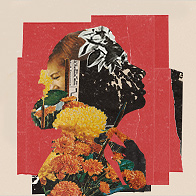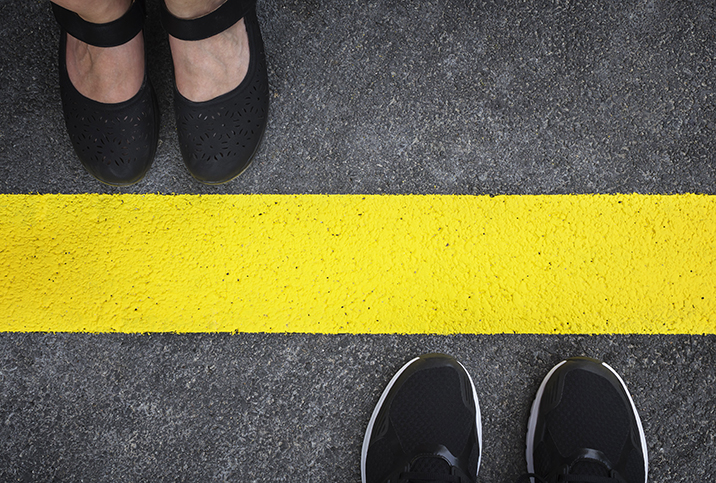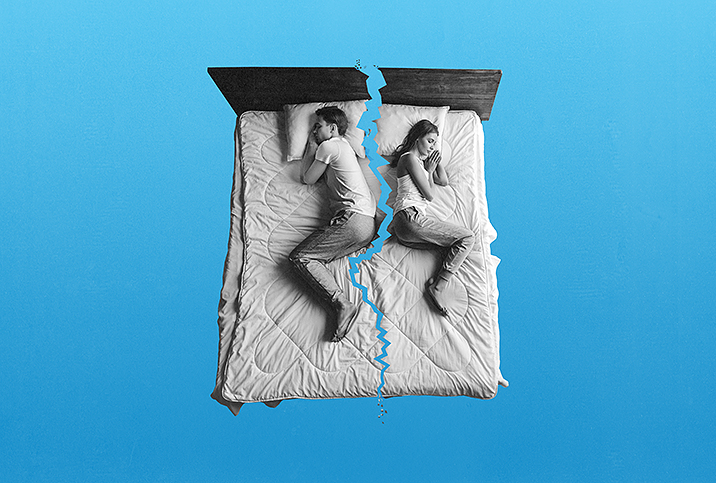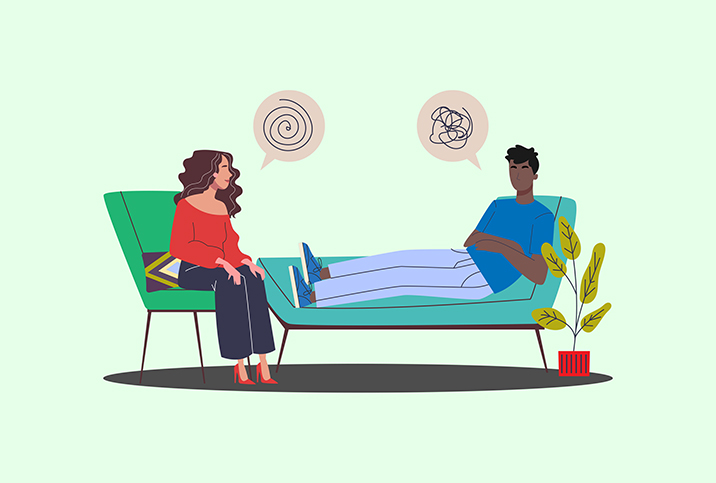The Long Journey to Overcoming Codependency

Codependency is one of many loosely understood pop psychology terms that oversaturates common speech. The phrase may fade into the ether once we grow sick of hearing it, but that would be a terrible disservice to the concept, which can prove relationship-saving.
"Relationship codependency occurs when one person feels responsible for the psychological, emotional and mental experience of another," said Alena Scigliano, M.S.Ed., founder and chief empathy officer of Coastal Light Counseling & Psychotherapy based in Virginia Beach, Virginia. "This manifests as attempting to regulate the emotions of the other person."
Overcoming codependency can help you and your partner see each other as individuals, in turn, reducing anxiety about being the "perfect couple."
Learn to distinguish your role
Recognizing yourself as the "regulator" in Scigliano's comment is a harsh truth. Perhaps your partner complains that you're overbearing and controlling, traits which you find unavoidable. If you consider yourself the "regulatee," thinking about how you expect your partner to respond when you're upset can be similarly brutal.
"Conflict and outbursts of anger are usually what one partner would fear occurring and why they regulate the other partner's emotions," Scigliano explained. "Oftentimes, it's having grown up with parents who were unhealthy and the partner spent their childhood regulating their parents' emotions. If that wasn't the case, the codependent dynamic could develop within their adult relationship through conditioning."
Tom Adams, M.D., part of the team at Menlo Park Psychiatry & Sleep Medicine in California, attributes childhood emotional neglect as the prototype for future codependency.
'Take a step back and consider where your own self is.'
"As humans, we are born with instincts to attach strongly to our caregivers," Adams explained. "When caregivers convey, intentionally or not, that their own needs are more important than the child's or that there is a kind of existential urgency to situations outside of the child's self, the child can learn that their own self is secondary, less important/urgent, and develop unconscious/automatic self-suppressing or self-forgetting habits that make codependent behaviors."
If codependent behaviors have persisted since childhood, it can be hard to identify them yourself. Adams recommended a few steps that may help.
"It's challenging for people to tell when they are being codependent," he said. "Take a step back and consider where your own self is. Ask yourself, 'What do I need or want? What am I feeling right now? What am I thinking?' If you come up with answers that suggest you've been strongly deprioritizing or forgetting those needs, wants, feelings or thoughts, that might be a clue that you're being codependent."
Are you responsible?
A tendency toward codependency doesn't mean you lack a rich inner life or you're not your own person. Lincoln Stoller, Ph.D., principal of Mind Strength Balance, a psychotherapy and spiritual coaching practice based in New York and British Columbia, refocused the conversation on the individual and what psychological hurt might make someone prone to regulating a partner.
"The question should not be about relationships, but about identity," he noted. "Relationships complement identity, and damaged relationships are rooted in damaged identities. Attempts to fix the former, while feeling lost, troubled and depressed, lacking in center, meaning or purpose, without addressing the latter will not sustain. You can change identity but it takes a deeper awareness."
Issues with codependency that root in personal identity can spread into every aspect of a relationship, down to intimacy and sex. It's easy to mistake codependent sexual interaction for being an attentive lover, but Scigliano identified certain red flags.
"A person who is sexually codependent feels responsible for the emotions and satisfaction their partner experiences in relation to their sexual experiences," she explained. "You can tell if you are in a sexually codependent relationship if you find yourself feeling completely responsible for your partner's sexual experience, pleasure, satisfaction, and for meeting their every need or desire. Specifically, being overwhelmed by anxiety regarding how they will behave or react is a telltale sign."
Anxiety or aversion to a trusted sexual partner is a sign to pay attention to, whether you perceive it within yourself or from your partner. Physical attraction that lessens deep into a relationship isn't the same as active anxiety around sex.
Pay attention to your mind as well as your body. In particular, are you not responding to arousal as usual? Are intrusive thoughts revolving around your partner taking you outside of the experience?
Whether it's run-of-the-mill anxiety or codependency, it warrants a conversation with your lover, especially as they most likely care about your enjoyment, too.
Changing the dynamic for good
Codependency is a nuanced behavior. We wish for empathy from our partner in the face of a problem, but that's not the same as them making it their own problem. The responsibility falls on both parties to identify codependency.
"If you are collaborating but your collaboration is not nurturing, there is something lacking in what the other person is providing," Stoller said. "When being open is making you weak, that's where the other party is failing to reciprocate. Either they're not providing or you're taking too much."
In her work, Scigliano practices a manageable process for undoing these habits.
"This dynamic can absolutely be broken in four steps," she said. "First, acknowledging the codependent dynamic. Second, seeking to understand what led to this dynamic; usually, psychotherapy will be your best way to address this. Third, choosing to change the dynamic. And fourth, working toward releasing the burden of feeling responsible for regulating your partner. Again, therapy will help with this."
Overcoming codependency takes two, but Stoller emphasized the importance of individual healing.
"I don't think a partner can heal you," he explained. "Healthy relationships are ones of collaborative self-sufficiency. It's something they're not socially rewarded for, [but] being self-sufficient means you have self-sustaining psychology. Culturally, self-sufficiency is denigrated as fostering anarchy. One needs to become both a psychological anarchist and a personal collaborator."
Codependency is the normalization of "self-forgetting," as Adams described it. It may feel like a favor to your partner, but a relationship functions properly only when we remember who we are.




















